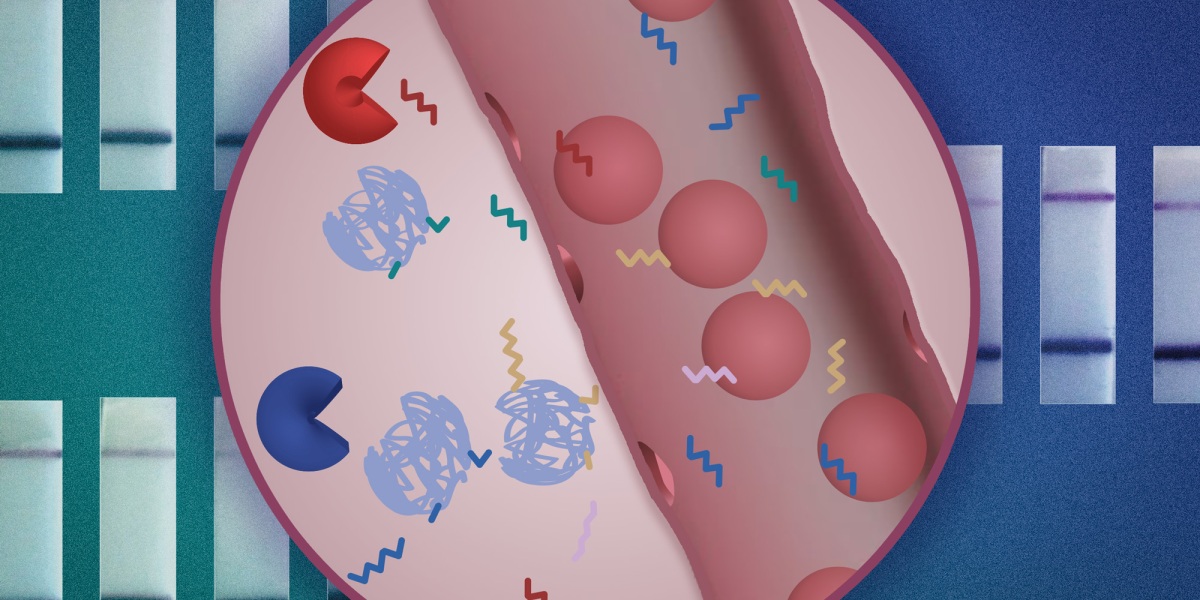
A nanoparticle sensor developed by Professor Sangeeta Bhatia, SM ’93, PhD ’97, and colleagues including former MIT postdoc Liangliang Hao, now an assistant professor at Boston University, could make it possible to detect and monitor cancers with an affordable paper-based urine test.
The nanoparticles are a variation on a type of “synthetic biomarker” developed in Bhatia’s lab that can produce a more easily detectable signal than the natural markers present in tiny quantities in people with cancer. When injected particles interact with enzymes that tumor cells produce, they shed specific sequences of DNA that are excreted in urine. Using CRISPR technology to analyze these DNA “bar codes” can point to distinguishing features of a particular patient’s tumor or reveal how well it is responding to treatment.
“Putting this diagnostic on paper is part of our goal of democratizing diagnostics and creating inexpensive technologies that can give you a fast answer at the point of care,” says Bhatia. In tests in mice, the researchers showed that they could accurately distinguish tumors that arose in the lungs from tumors formed by colorectal cancer cells that had metastasized to the lungs. They also showed that their approach could be scaled up to distinguish at least 46 DNA bar codes in a single sample.
